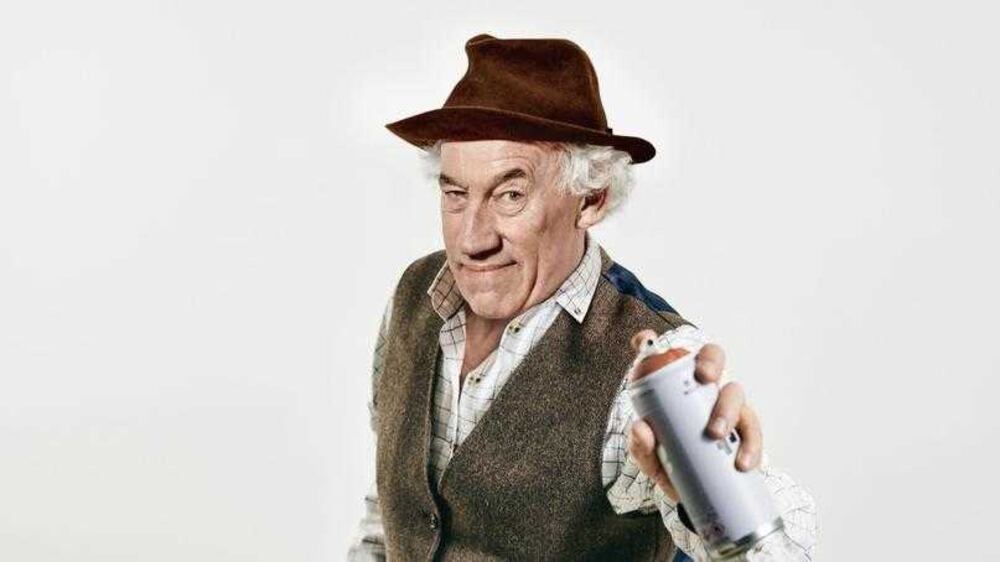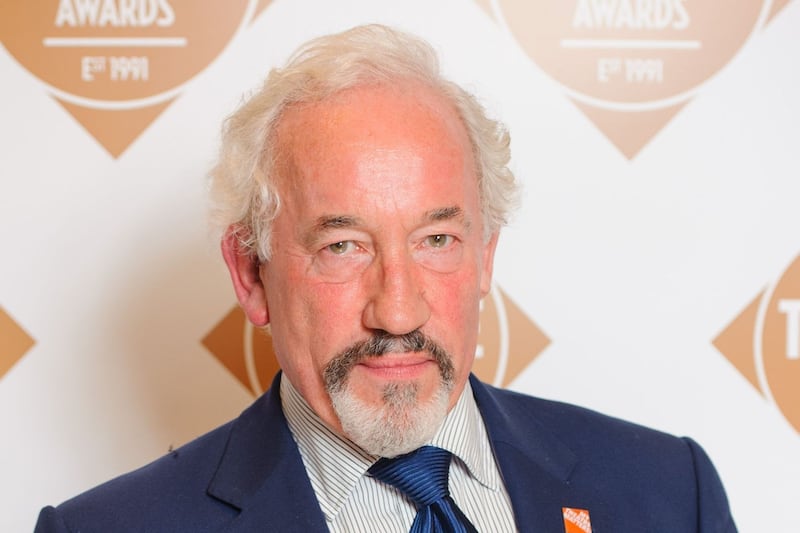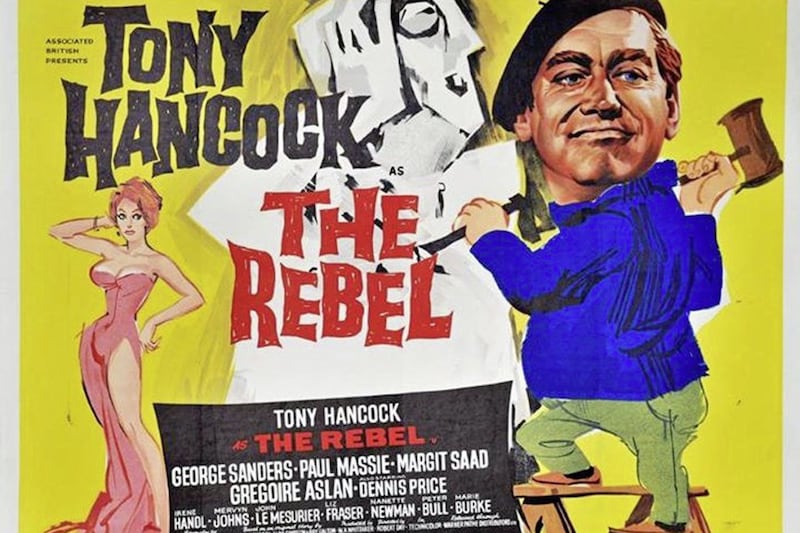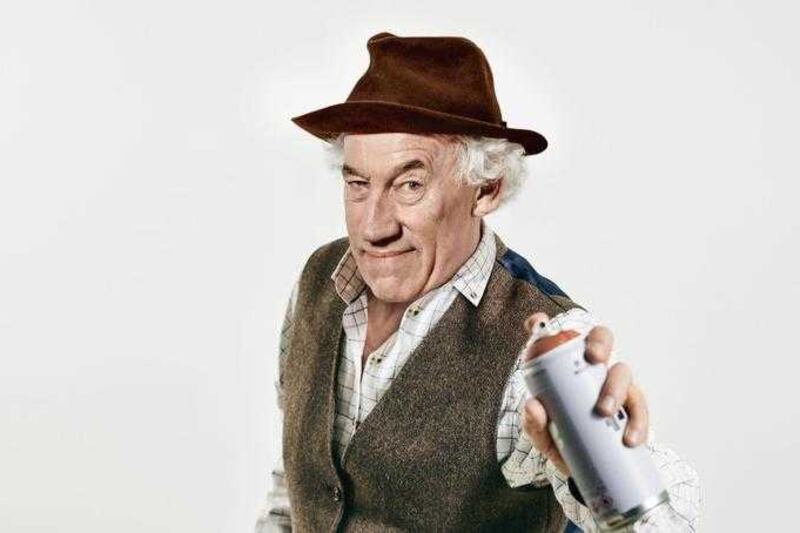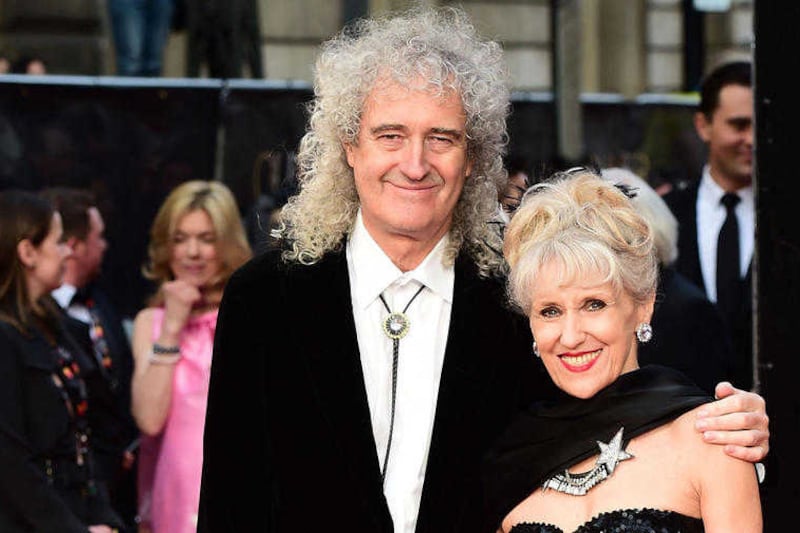IT'S testament to Simon Callow's delivery that a rant about his ongoing dispute with baristas who struggle with his coffee order, is more masterclass in drollery than mundane moan.
"I go into a coffee shop and I say, 'A double decaf espresso please'," explains the 67-year-old, appearing on the verge of an exasperated sigh. "I say it quite clearly, and they say, 'Single or double?'
"I say, 'Do you mean, do I want a single double decaf, or a double double decaf?'
"'What?' So I say, 'Double. A double decaf espresso'. 'Machiato?' 'No. A double decaf espresso'. These things go on like an endless mantra."
Also up there on the list of things which drive Callow up the wall are waiters and waitresses who place a napkin on his lap as soon as he's settled in at a restaurant ("Why am I being tucked up like a child in a high chair?"), and then there's "the astounding ugliness of modern architecture", and the use of the word 'pop' "as a substitute for anything".
Relating to 70-year-old Henry, his disgruntled character in new three-part television comedy The Rebel then, wasn't too much of a stretch.
Based on The Oldie magazine's comic strip of the same name, and also featuring Anita Dobson and Bill Paterson, Callow plays widower Henry, who, fed up with the conventional life he's led for the last 50 years, starts rebelling against authority and reconnecting with the mod of his youth.
"He's not like Victor Meldrew, who just dislikes the modern world because it's the modern world," states London-born Callow, known for his roles in Four Weddings And A Funeral, Shakespeare In Love and Amadeus.
"Henry dislikes the modern world because it isn't sufficiently anarchic. On the other hand, he wants it to be anarchic in his way."
As for the actor, however, he says he's never been especially rebellious in real life – although during a short spell studying at Queen's University, Belfast, before he left to become an actor, he witnessed fellow students throw pieces of chalk and paper aeroplanes at one of his lecturers, the soon-to-be esteemed Nobel prizewinner, Seamus Heaney.
"But he wasn't Seamus Heaney yet," Callow told Today FM presenter Anton Savage in an interview ahead of his reading of the late poet's Aeneid Book VI in Co Carlow last month.
"I remember he [Heaney] gave wonderful lectures on Yeats which were not always appreciated by my fellow students – although he was wonderfully good-humoured about it."
Outside the lecture theatres on the streets of Belfast, Callow also recalled how he had had his shins "smacked" by the batons of the B Specials while out protesting with the People's Democracy organisation, whose founders included Bernadette Devlin and Eamon McCann.
Now 67 and recently married, he ended up in Belfast by default after being prevented from studying at Trinity College, Dublin – his first preference – when he couldn't get a grant after "the British government finally decided Ireland was a separate country".
"I really wouldn't describe myself as a rebel," he insists, "but I am very clear about what I want and, in some cases, how I think things should be. In the 70s and 80s, I was very prominent in the gay liberation cause, and I totally believed in it and thought the case should be made and change should come about.
"And as it happens, it has, but I didn't feel that I was a rebel," says Callow. "I just thought I was making a perfectly rational case for something. I'm very happy now, for example, that gay marriage has become possible."
The actor celebrated this himself, marrying his partner Sebastian Fox in a ceremony in Greece. And while society has changed somewhat, he says he's become more accepting of himself as he's aged, as well.
"I don't seek approval," he says of growing older. "You always wanted people to like you, and now you think, 'Well, if you don't like me, too bad, find somebody else'. Not worth the hassle.
"I know enough about myself now, about what I'm worth. I know where my failings are. I hope I know something about my qualities."
And he knew enough about himself to feel at odds with his peers in the 60s.
"In my youth, I was discovering classical music, comparative religions, history," says the actor, who has also penned a number of biographies, on the likes of Orson Welles and Oscar Wilde.
"I didn't feel like I was part of my generation at all. I didn't identify with any of that. But when I went to drama school in 1970 to 1973, we were still filled with great idealism for change in society.
"It wasn't like mods and rockers, that wasn't it at all. We thought the theatre would inspire people to live more fully and shed their bourgeoisie aspirations."
He feels this ideal "fell apart – especially in the period of Margaret Thatcher", when budget cuts meant a subsequent slash in funding for the arts, but that the mood is now shifting. Callow believes "theatre is sexy again", and "a lot of movie stars of all ages are very keen to work in theatres and earn their spurs" there.
But the "disappointing" thing for Callow is the demise of the repertory system, "where actors would spend a year or two learning so much".
"Now, many actors are quickly thrown into stardom in a way that almost never happened in my time," he explains. "It's as if they just haven't had the chance to mellow themselves as actors. Everyone is very efficient, but somehow people don't seem to open up their souls very much."
After working on the stage for many years, Callow found his career taking another turn when he played Gareth in 1994 Richard Curtis hit Four Weddings And A Funeral, garnering a Bafta nomination and recognition among cinemagoers – across the globe.
Laughing, he recalls a pivotal scene in which Gareth's joyous celebrations at a wedding leave him dead on his feet.
"That Scottish dancing very nearly killed me!" he says laughing, as he recalls filming Gareth's final energetic scenes.
"Do that three times in a row and you don't have to fake a heart attack!"
It's clear he has happy memories of the film.
"I think we all assumed it would be a big success in the English-speaking world and, of course, it was, but I was amazed that a year after it was out, I was in Japan directing a show and there were queues around the block," he reveals. "And a year after that, I was in Tahiti making a film, and there were queues around the block for Four Weddings And A Funeral. It touched a nerve."
Despite being 22 years since its release, Callow continues to be reminded of the romcom.
"There's a generation that doesn't know Four Weddings And A Funeral, but from 30 years old to the grave, everyone seems to watch it about twice a year," he adds with a chuckle.
"I've only ever seen it once, so I don't know the film nearly as well as they do."
:: The Rebel begins on Gold on Wednesday, July 20.
